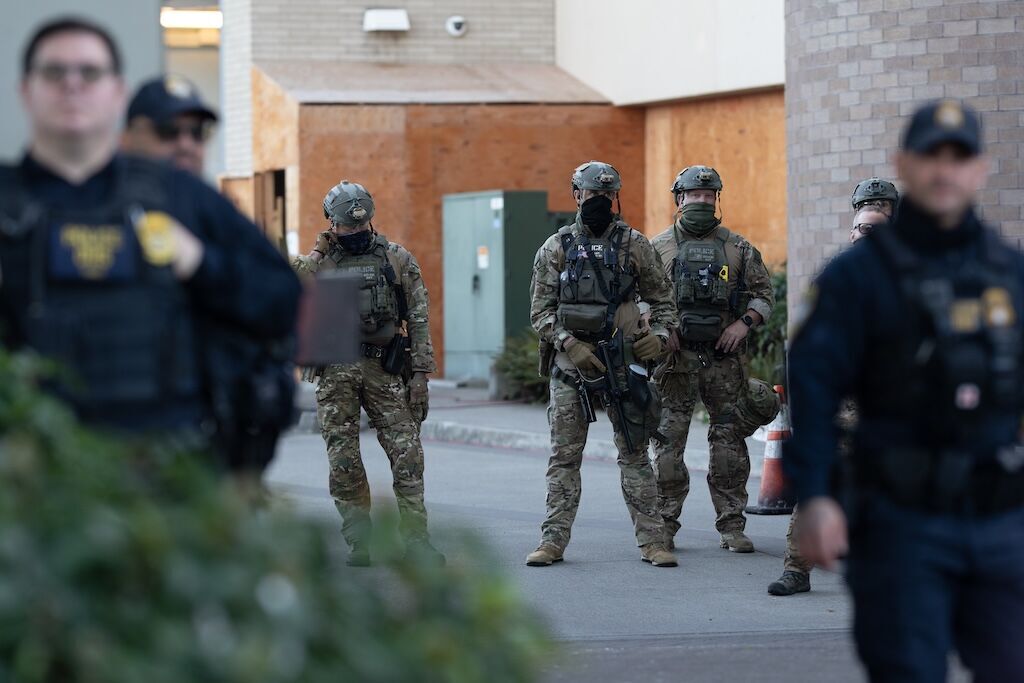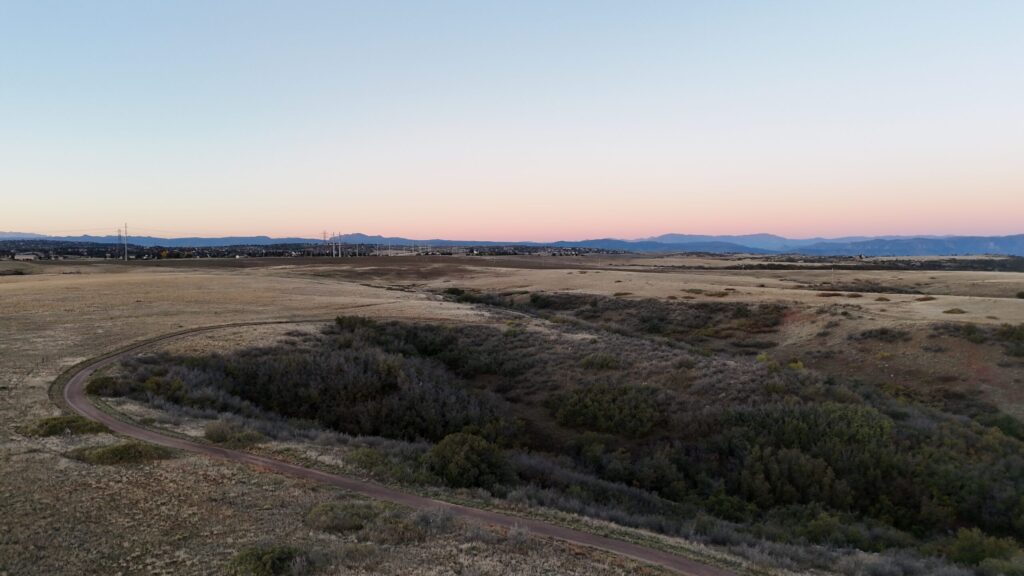Ranchers press Colorado Parks and Wildlife for rule changes on wolf management
Frustration over Colorado Parks and Wildlife’s handling of the wolf reintroduction program has prompted a coalition of 26 ranching and agricultural organizations to file a petition with the agency’s commission asking for rule changes and to also delay further introductions of the apex predators until a critical complaint has been addressed.
The ranchers want the state agency to finally define “chronic depredation,” which would allow for the lethal management of wolves that repeatedly kill livestock.
The Copper Creek pack, a mating pair, and four pups were recently removed from Grand County based on complaints the group was responsible for the killing of more than a dozen livestock in the area. The male of the pair died days after being captured due to unrelated injuries, according to Colorado Parks and Wildlife officials.
A pair of wolves in Jackson County is also believed to be responsible for the deaths of more than a dozen livestock and working cattle dogs.
In Oregon and Washington state, wolves that kill livestock, including as few as two, are lethally managed.
However, Colorado officials have refused to take lethal action, despite wolves killing dozens of cattle, sheep, and working cattle dogs in Grand, Jackson and Routt counties. Since the Oregon wolves were relocated to Colorado last December, more than two dozen livestock depredations are listed on the state’s wolf depredation page.
Producers have claimed the numbers are much higher and that wildlife staffers are slow — or unwilling — to confirm livestock attacks.
The CPW commission is meeting on Thursday and Friday this week. CPW has scheduled range rider training to work with livestock producers on the same two days, which will keep some producers away from the commission meeting.
The coalition filed a formal “Petition for Rulemaking” with the commission, seeking to delay any further introductions of gray wolves into the state until Colorado’s wolf management program adequately addresses the conflicts between wolves and livestock producers. The petition, which was submitted Friday, is not yet listed on the state agency’s website.
Under the commission’s regulations, “(any) person may petition the commission to initiate rulemaking.” The petition noted that “nothing in the statute mandates the pace at which the commission must introduce wolves.”
So, asking for a delay would not violate the wolf reintroduction plan, the petition said.
The commission not only has the authority to adopt rules to delay the introduction of additional wolves in Colorado, but it also has the responsibility to do so, the petition said. Under the state’s Wildlife Act, the commission must “(develop) a plan to restore and manage gray wolves in Colorado” based on the “best scientific data available,” and that plan “must be designed to resolve conflicts with persons engaged in ranching and farming in this state.”
The petition asked the commission to address four key issues, according to a statement from the Colorado Cattlemen’s Association on Monday.
-
The petition seeks to adopt a clear definition of “chronic depredation” and mandate lethal take requirements for wolves that consistently prey on livestock. The petition noted that CPW has “relied on the ambiguity of the term to deny any request to lethally control chronically depredating wolves in Jackson and Grand Counties.”
-
The petition asks for the proactive development, testing, and funding of non-lethal methods to prevent depredations and fully fund range riders dispatched in areas potentially affected by wolf introductions. “Range riders patrol on horseback and in vehicles to intercept and scare away wolves threatening livestock and working dogs. The petition emphasizes the need for a streamlined process that allows producers to easily enroll in these prevention programs,” the cattlemen’s association said in a statement.
-
The petitioners request that CPW conduct vulnerability site assessments on potentially impacted operations before any future wolf releases. These assessments will allow CPW to understand each operation clearly, while ensuring that producers are informed about the full range of non-lethal options available, the petition said. “This collaborative approach will enable CPW and producers to agree on what methods are suitable for each specific operation and which ones may not be effective, promoting tailored solutions for livestock protection,” the cattlemen’s group said.
-
A trained rapid response team should be in place and deployed to areas where wolves are actively preying on livestock to mitigate damage before it escalates.
The petition noted that non-lethal methods have been ineffective because wolves quickly learn the measures do not harm them. Livestock producers in Middle Park reported countless sightings of the two wolves from the Copper Creek pack sauntering away from humans yelling or screaming at them. When producers employ cracker shells and other targeted nonlethal measures, wolves are briefly repelled before circling back around to approach livestock from another direction. Range riders are expensive — Middle Park pays $400 a day to cover 160 miles.
Then there is the issue of CPW staffers. The petition said once a depredation occurs, the agency fails to ensure adequate staffing in the field and doesn’t adequately train them to investigate suspected wolf depredations.
“Livestock producers have had to wait long periods of time for CPW staff to arrive following reports of wolf harassment or a suspected depredation, and the longer CPW staff delays, the more likely it is that bears or scavengers will consume the carcass and destroy any evidence of the cause of death,” the petition said.
It’s also evident that not all staffers have received sufficient training, the petition said, citing instances in which they were unfamiliar with the signs of wolf depredations, resulting in inconsistent investigations.
A declaration from Grand County’s Conway Farrell said since gray wolves were reintroduced in Grand and Summit counties in December 2023, the Farrell Livestock’s ranch alone has experienced 15 confirmed wolf depredations.
“For suspected but unconfirmed depredations, we have had 15 sheep killed, 29 calves out of 169 late calvers missing, and six calves missing during calving season,” Ferrell said. “Making matters worse, CPW has been inconsistent in its own messaging of best management practices to avoid wolf-livestock conflicts — often contradicting itself or its own practices. At times, CPW has removed a carcass after investigating a suspected depredation, while at other times, it has left the carcass at the location.”
Farrell said he’s used almost every nonlethal management tool available, but the wolves circle back from another direction.
CPW’s regional manager, Travis Black, denied Ferrell a lethal permit. Black accused Farrell of baiting wolves by leaving carcasses in a “dead pit.” Black also said Farrell did not employ nonlethal methods for chasing off wolves until after the first depredations occurred.
A May 23 letter from the Middle Park Stockgrowers vehemently denied that producers were baiting wolves and demanded Black show proof.
“If you have a single piece of evidence of baiting or luring wolves onto the Ranch by Producer, we demand that CPW produce such evidence within two days of this letter. Otherwise, we demand within three days of this letter that CPW: 1) publicly retract such slanderous statements and issue a public apology to the producer and 2) identify by name those members of CPW or the CPW commission that are spreading these lies.”
The coalition includes the cattlemen’s association, the Middle Park Stockgrowers Association, Colorado Farm Bureau, Club 20, and the Colorado Wool Growers Association, as well as livestock and wool growers in Grand, Moffat, Routt, Garfield, Gunnison, Jackson, Mesa, Montrose, Eagle, Ouray, San Miguel, Delta, Rio Blanco, and La Plata counties.











